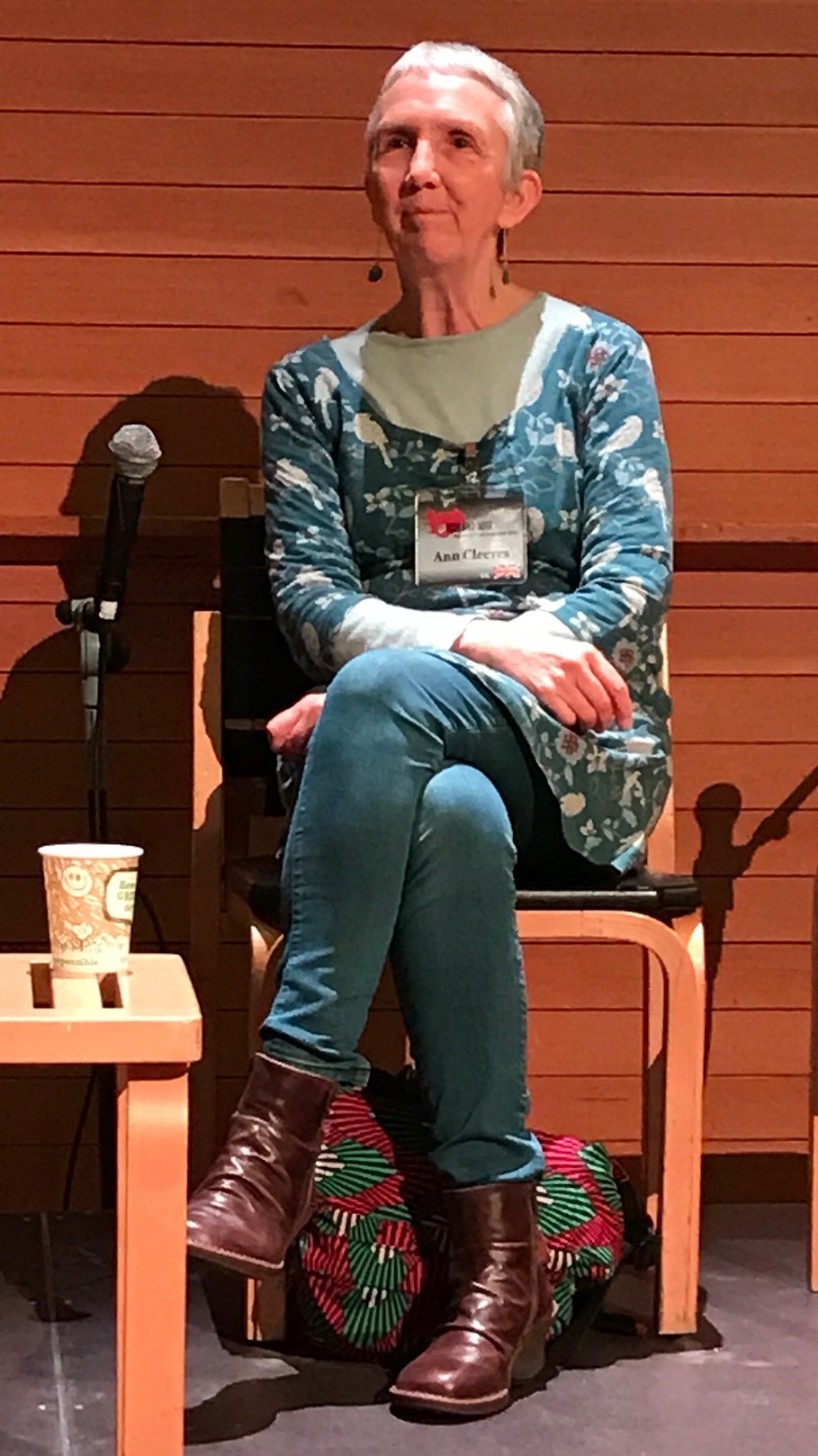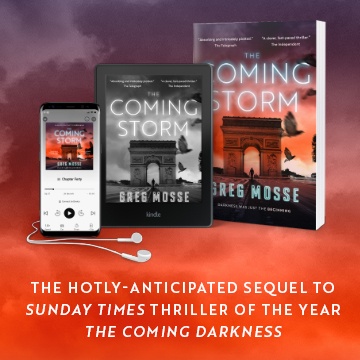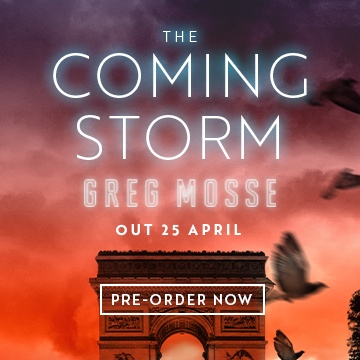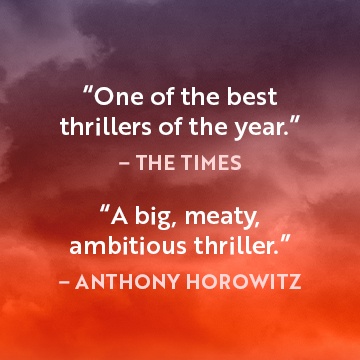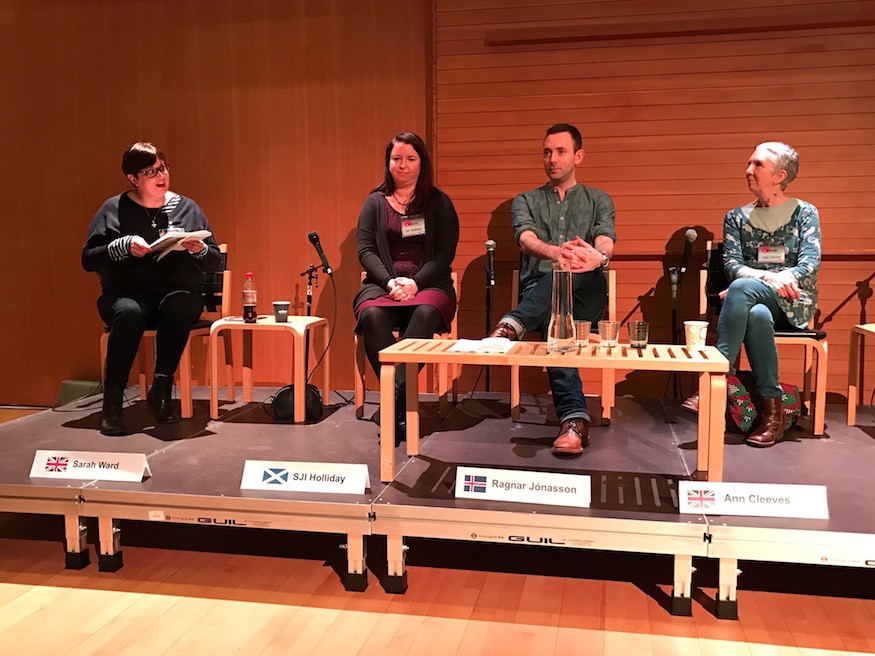
Smalltown Skulduggery with (left to right) Sarah Ward, SJI Holliday, Ragnar Jonasson and Ann Cleeves.
“When you have a bit of blood on snow, it’s interesting,” Icelandic author Ragnar Jonasson told the audience today at Iceland Noir, the crime fiction festival held in Reykjavik. “It’s the same with a small town. You have peace, and then someone is murdered.”
Ragnar was part of the day two panel talking about Smalltown Skulduggery, alongside Ann Cleeves and SJI Holliday, with Sarah Ward moderating. Outside, a freezing wind swept across Reykjavik as the four of them discussed how small towns – whether in Iceland, the UK, US or anywhere, really – can create a wonderfully enclosed atmosphere for a mystery.
One of the big challenges is believability. A wave of murders on a small group of islands with a total population of 23,000, like the Shetlands, stretches things said Ann Cleeves. Plus, people living there try and work out the real locations of the murders and even who the killer is based on. At a deeper level, what interests the creator of the Shetland and Vera series is exploring the idea of community.
“I quite like village noir, and what makes a community work and what fractures it,” said Ann Cleeves.
And in today’s world, where mobile phones and the internet have become pervasive, is anywhere really as isolated as crime authors would want us to think? SJI Holliday explained that the fictional town where her books are set has a bus to Edinburgh every 20 minutes, yet feels cut off from city life. “The isolation can be more in people’s minds than actual,” she said.
Ann Cleeves revealed that her next Vera book will be set in Whitley Bay, the fading Victorian holiday town where she lives. It’s entitled The Seagull. Fans may also be saddened to hear that the Shetland series will be coming to an end in 2018, with a book called Wildfire. “I’ve been heavily bribed by Orkney,” joked the author.
Fiction versus fascism
Bribery, corruption, justice, political oppression – these were leading topics for the Social Commentary panel, earlier in the day. Regulars at crime festivals will roll their eyes when the topic appears on the programme simply because it is so widely discussed. But with Trumponomics and Brexit fever in the air, authorial social commentary has taken on a new significance – something Val McDermid spoke so eloquently about during her keynote yesterday evening.
So, Barbara Nadel, Helen Cadbury, Valentina Giambanco and Hildur Sif Thoraraensen got into the nitty gritty – not just the usual mild argument over whether social justice or storytelling deserves to be at the fore. David Swatling posed the questions.
“I think it’s become more prevalent in recent years, probably as the situation deteriorates,” said Barbara Nadel, who sets one of her series in Turkey and another in East London. “It’s a good thing to see social commentary in crime novels, it’s very timely.”
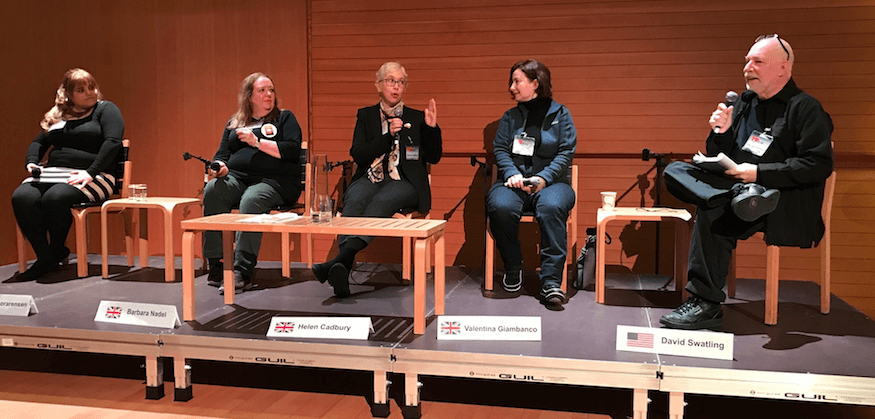
Left to right: Hildur Sif Thorarenssen, Barbara Nadel, Helen Cadbury, Valentina Giambanco and David Swatling.
Things have got to the point now where Barbara wonders whether she might be detained whenever she lands in Turkey to research a new book. For instance, she used the 2013 Gezi Park protests in Istanbul as the backdrop for one of her novels, allowing the issues to seep into the book as a murder is solved… hindered by the disturbances simply because travel in the city became difficult. Who knows if the Turkish president is aware of it, how he feels, or what he’d do…
Helen Cadbury uses her experiences working in women’s prisons to fire her some of her novels, and finds it interesting to look at things from the perspective of the offender. It’s not about a good detective and a bad killer. People who are in the system aren’t so different from you or I, she pointed out. Her recent book features Chloe, who is preparing for release. “What’s it like to be released after a very long sentence? Put yourself in that person’s shoes. What would it be like?” asked Helen.
“I’m conscious that part of my readership is women in their 50s who think my main detective character is cute. If they go away thinking a little bit more about some of the issues, though, that’s good,” she added.
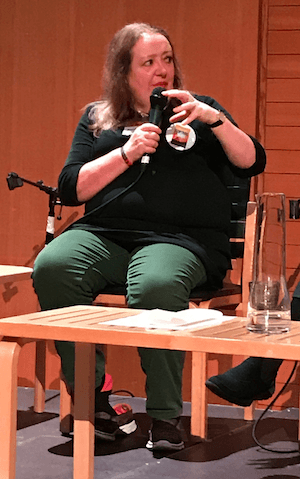
Barbara Nadel – writing stories and making a stand.
When politicians and the media can’t necessarily be trusted, David Swatling suggested that crime novels a place readers can turn for a reflection of society that explores a few more angles. Valentina Giambanco is an Italian author living in the UK, but writing about the police in Seattle, Washington. As part of her research, she’s been going on ride-alongs with Seattle cops and finding out what it’s like from the other side. It’s a city where the police are regularly accused of brutality.
“I met the officers and got their feedback on their relationship with the media,” she explained. “I asked them if there were three things they want the public to know, what would they be.”
What they said was that things aren’t always how the media depict them. “Out of 1,300 officers in the department, 20 were indicted for such crimes,” said Valentina.
On patrol with the police, the city’s huge homeless problem became a lot clearer to the author, and its affect on policing. “80 per sent of what a patrol officer does is dealing with the homeless,” she said.
“It’s not just a duty, you have the power to write about these things,” said young Icelandic author Hildur Sif Thorarensen, whose goal is to challenge any kind of social prejudice. “I want people to look at other people like they are people, not like they are people-who-blah-blah-blah.”
When and if her books are translated into English, watch out for the topic of homosexuality in her first book, and prostitution in the second.
Of course, Iceland Noir has its own subversive infiltrators. There are authors here using hot rather than cold settings and they’re wearing badges saying Sunshine Noir, almost as a form of protest. This collection of short stories by hot climate crime writers is worth picking up… We might need it if the freezing wind here in Iceland doesn’t let up.
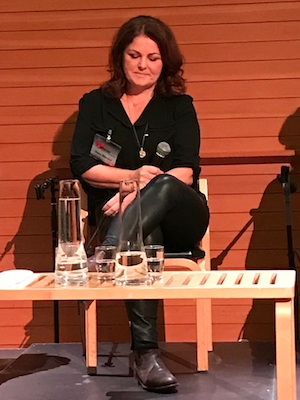
Sara Blaedel, not feeling too dangerous.
Dangerous women
Focusing in on the potentially hot topic of gender, academic Jacky Collins chaired the Dangerous Nordic Women panel. Featuring Solveig Palsdottir, Sara Blaedel, Kati Hiekkapelto and Jonina Leosdottir, the panel quickly brushed aside the idea that gender is a big consideration in their writing.
Crime readers are used to female authors and have been for a century or so, thanks to the likes of Agatha Christie and Ruth Rendell, and many more. The discussion quickly moved from gender to ageism, with Jonina Leosdottir explaining that her main character is advanced in years but instead of knitting goes out to crack cases at a rate of four a year. A modern day Icelandic Miss Marple.
That’s not to say sexism is dead in publishing. There may not be as many barriers – or maybe none at all – for women authors nowadays, but Kati Hiekkapelto pointed out that awards panels certainly favour men. Only four woman have won Scandinavia’s Glass Key since it began in 1992. In her country, Finland, five woman have won the Clue of the Year crime novel prize since 1985. No female author has won the CWA’s International Dagger in the last 10 years. And, three quarters of crime books reviewed in the New York Times are by men.
Other panels in a full-on Friday at Iceland Noir included Heroes, Heroines and Villains; Emotional Rescue, Darkness – What Frightens You?; and Skeletons in the Closet – Family Secrets.
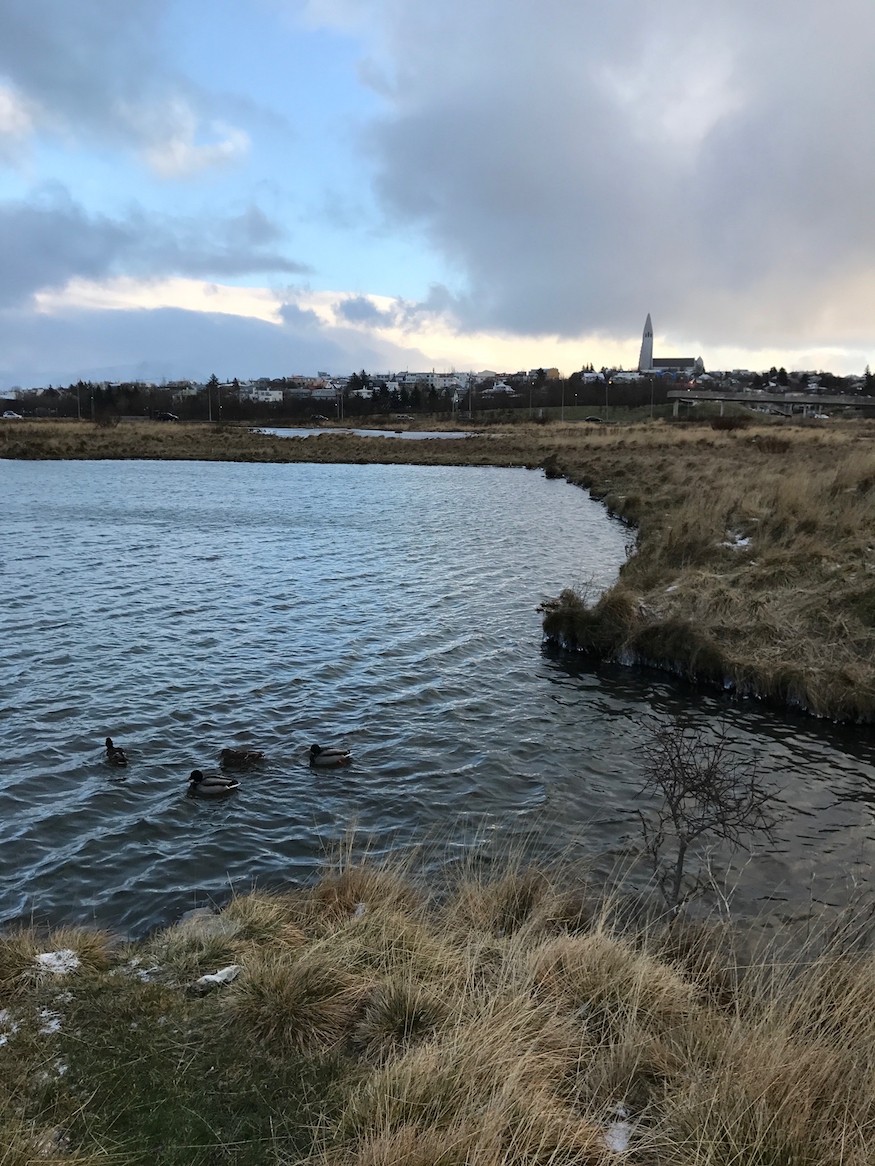
Outside the conference, suitably moody weather. With ducks.






